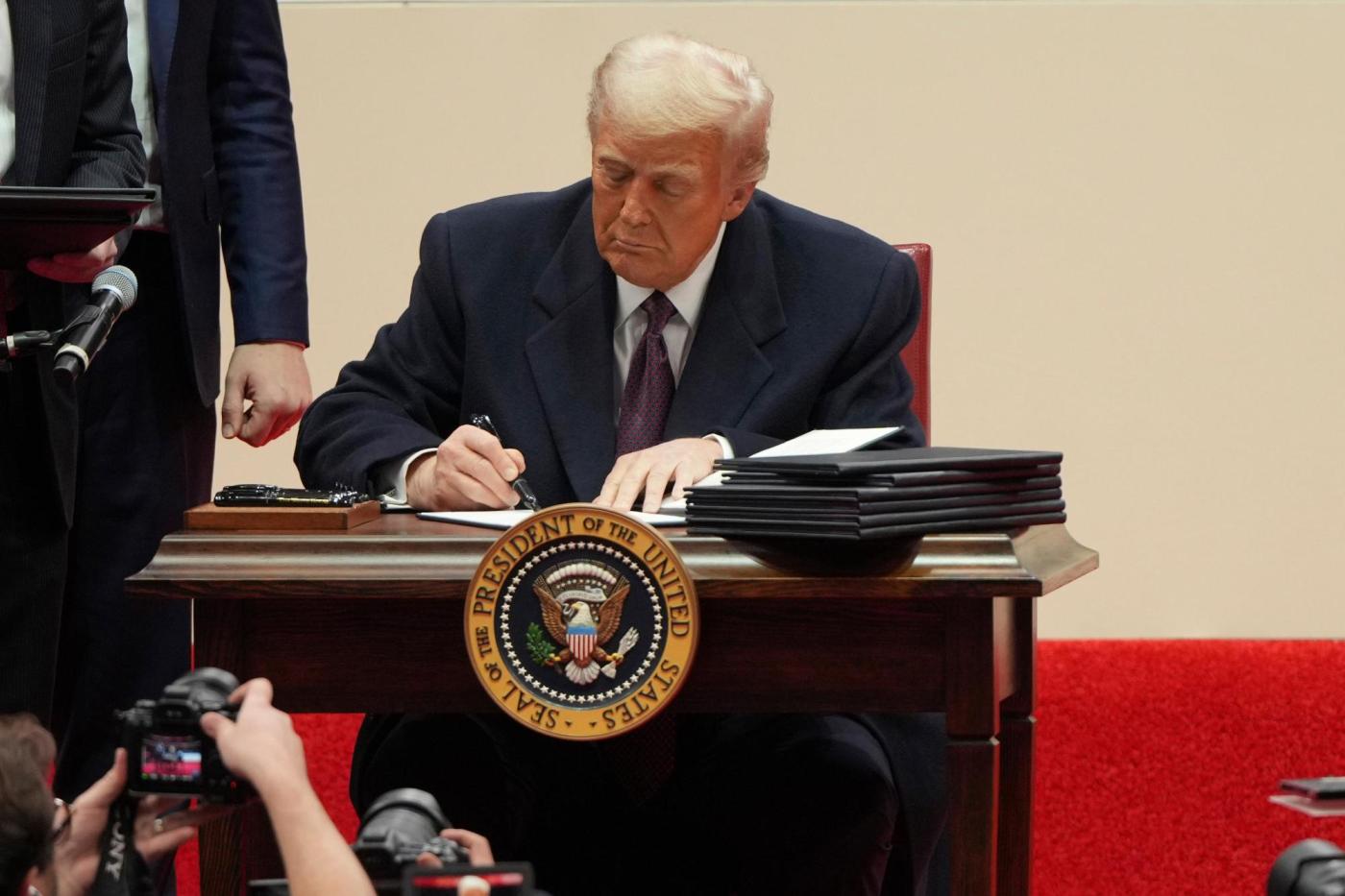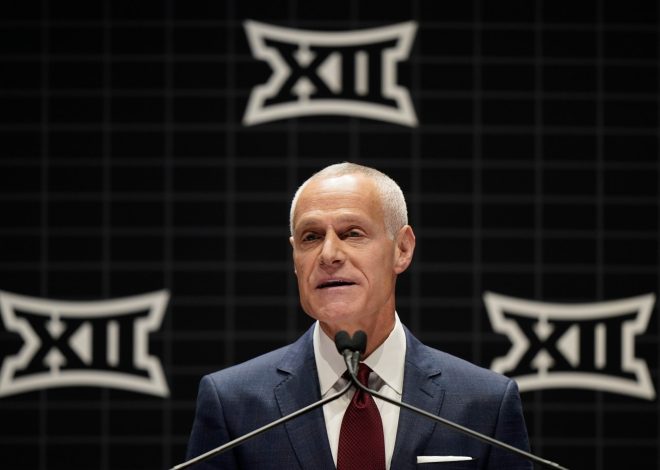
Trump’s Day 1 promises collide with California on border, environment
From cracking down on sanctuary cities that protect undocumented immigrants to revoking electric vehicle mandates, President Trump’s Inauguration Day priorities set up conflicts with a number of California policies, including immigration and the environment, spurring quick reaction from state Democratic leaders poised to fend off the impacts of a second Trump era.
Trump signed more than 100 executive orders, including declaring a national emergency at the southern border, stopping all illegal entries there, ending birthright citizenship and returning “millions and millions of criminal aliens back to the places from which they came,” he said during his 30-minute inaugural address inside the Capitol rotunda Monday.
Trump’s Day 1 actions included rescinding 78 executive orders of the departed Biden Administration on border enforcement and climate policy. He once more removed the U.S. from the Paris Climate Accords. He ordered a freeze on new regulations and civilian federal hiring, and ended work-from-home for federal workers. He also signed orders forbidding federal offices from engaging in censorship and against taking politically targeted actions, and called for a memorandum on price relief.
“Orders to open the borders have endangered the American people and dissolved Federal, State, and local resources that should be used to benefit the American people,” the administration’s recissions order stated. “Climate extremism has exploded inflation and overburdened businesses with regulation.”
At the same time, two dozen immigrant advocates and local leaders gathered at a small nonprofit in East San Jose to support the immigrant community as they did the last time Trump took office in 2017 and made similar threats. Back then, mass deportations never took place in the Bay Area, where state and local law enforcement officers follow sanctuary laws that largely forbid them from asking about immigration status or helping federal agents with deportation raids.
“The incoming administration has proposed a variety of harmful policies that threaten to hold our communities back, including mass deportations, family separations and, of course, cruel detentions,” Santa Clara County Supervisor Otto Lee said, speaking Monday at the nonprofit Amigos de Guadalupe Center for Justice and Nonprofits. “The city will not turn its back on any of its residents who call San Jose home.”
The president and his team have offered conflicting messages about their targets: at times threatening to conduct mass roundups of all undocumented immigrants across the country — estimated at some 13 million — then at others suggesting they would pursue primarily those with criminal convictions, which number closer to 650,000.
Nonetheless, the roughly 471,000 immigrants estimated to live illegally in the Bay Area — including 359,000 in Santa Clara, Alameda, Contra Costa and San Mateo counties, according to the Migration Policy Institute, a nonprofit immigration think tank in Washington, D.C., — are rattled.
Maria Chavez, 47, also spoke at the nonprofit office, saying she is particularly concerned she could be targeted by an ICE raid. While her husband has temporary protected status and her four children ranging in age from 18 to 5 were all born here, she crossed the border illegally in 2004 and remains in the country without authorization. She fears she could be separated from her children.
“My 12-year-old son said he would hide me in the closet if ICE came,” she said. “Now he gets nervous every time he sees the television news and is starting to be anxious and bite his nails. He says he doesn’t want to go to school and just wants to be with me all day.”
The administration said there would be an executive order revoking provisions of the 14th Amendment guaranteeing citizenship to anyone born on American soil — an edict that will surely be challenged.
“I don’t believe that by executive order, he’s going to change the Constitution, so I predict that will go nowhere,” said San Jose immigrant rights lawyer Richard Hobbs.
Another reversed order was one Biden issued on artificial intelligence in 2023 as OpenAI’s generative AI was starting to take the world by storm. The AI order sought to mitigate risks from the technology, minimize AI-caused job losses, and ensure AI does not enable discrimination.
On the environment, Trump said Monday he wants to streamline permitting for oil and gas drilling. He also said he wants to restore the name of the Alaska mountain from Denali to Mt. McKinley after the former president who raised tariffs on foreign countries, and rename the Gulf of Mexico to the Gulf of America.
Many of Trump’s efforts to rewrite environmental laws during his first term were overturned by courts or reversed by President Biden after he took office four years ago.
As with Trump’s first term, experts are expecting California and other Democratic led states to continue now to push to meet the Paris Agreement’s voluntary targets — which aimed to keep the planet from warming more than 2.7 degrees Fahrenheit or 1.5 degrees Celsius from pre-industrial levels — and take other steps to maintain their state environmental laws.
“I think there is going to be more rhetoric about California than impact on California,” said Dustin Mulvaney, a professor of environmental studies at San Jose State University. “California has very strong decarbonization policies and state environmental policies. The concern is all the other states. California can’t tackle climate change alone. But California will use the resources we have to move its targets forward.”
Bay Area News Group data reporter Jovi Dai and Staff Writer Ethan Baron contributed.


